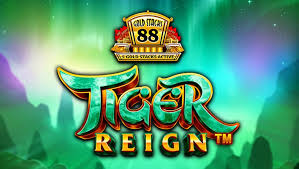The thrill of discovery, the allure of hidden riches, and the rush of adrenaline characterize what can only be described as an Explosive Gold Blitz. This phenomenon has captured the imaginations of adventurers and dreamers alike, igniting a passion for treasure hunting that spans generations. In this blog post 789BET, we will delve deeply into the world of treasure hunting, exploring its history, the ins and outs of modern techniques, the psychology behind it, and the potential rewards and risks involved in chasing gold.
The History of Treasure Hunting Explosive Gold Blitz
Treasure hunting is far from a new pursuit; it has been part of human culture for centuries. The concept of searching for hidden wealth can be traced back to ancient civilizations, where legends of lost treasures and buried riches sparked the imaginations of many.
Ancient Civilizations and Their Treasures
From the gold-laden tombs of Egyptian pharaohs to the sunken ships off the coasts of Spain, ancient civilizations left behind a legacy of wealth that continues to captivate treasure hunters today.
In Egypt, the burial of pharaohs with their riches intended for the afterlife is perhaps one of the most famous instances of treasure hiding. The discovery of King Tutankhamun’s tomb in the early 20th century revealed a wealth of artifacts and gold that were not only valuable but also provided significant insights into the culture of ancient Egypt.
Similarly, shipwrecks have fascinated explorers for centuries. The Spanish galleons laden with gold and silver from the New World met tragic fates in storms or through piracy, resulting in legendary tales of lost treasures waiting to be discovered beneath the ocean waves.
These historical instances laid the groundwork for modern treasure hunting, fueling myths and legends that persist to this day. Each story of lost treasures carries with it a unique adventurous spirit, inviting contemporary explorers to partake in these quests.
The Gold Rush Era
Moving forward in history, the gold rush era of the 19th century marked a significant turning point in treasure hunting. Individuals flocked to places like California and Klondike, driven by dreams of wealth and prosperity. These gold rushes sparked intense competition and camaraderie among prospectors, highlighting both the social aspects of treasure hunting and the lengths people would go to chase their dreams.
During these times, communities built around mining operations flourished, bringing together diverse groups of people united by a common goal. Though many returned home empty-handed, the stories and experiences shaped a rich tapestry of American folklore and continue to inspire treasure hunters today.
Modern Treasure Hunting Techniques
As technology advances, so do the methods employed by treasure seekers. Modern treasure hunters utilize sophisticated equipment and techniques that make it easier to locate hidden gems, whether they are buried underground or submerged underwater.
Metal detectors, sonar mapping, and underwater drones have revolutionized the way we search for treasures. With tools that once seemed like science fiction, treasure hunters can now scan vast areas with incredible precision. Moreover, advancements in geological surveys allow for better predictions of where mineral deposits might be found, making the hunt both exciting and scientifically grounded.
However, the essence of treasure hunting remains the same: it is still about exploration, adventure, and the possibility of uncovering something extraordinary. Even with all the latest technology at our disposal, there is still an element of chance and unpredictability that keeps the excitement alive.
The Psychology of Treasure Hunting Explosive Gold Blitz
Beyond the thrill of discovering physical treasures, treasure hunting taps into deeper psychological motivations. Understanding why individuals pursue treasure can provide invaluable insights into human behavior and desire.
The Allure of Adventure
At the heart of the treasure hunting phenomenon lies the innate human desire for adventure. From childhood fantasies of pirates and buried treasure maps to adult escapades in the wild, the call of adventure is powerful.
Adventure satisfies several psychological needs: it provides a break from monotonous routines, stimulates curiosity, and offers opportunities for personal growth. The unpredictability of treasure hunting—whether it’s navigating rugged landscapes or diving into uncharted waters—makes it thrilling. For many, the journey itself is just as valuable as the potential rewards.
Moreover, the community aspect of treasure hunting can amplify the joy of adventure. Whether joining forces with friends or participating in organized digs, sharing discoveries and experiences fosters bonds that last a lifetime.
The Search for Meaning
Treasure hunting is often more than just a quest for gold; it can represent a search for meaning and purpose. Many treasure hunters embark on these journeys seeking not only material gain but also a sense of fulfillment.
The Explosive Gold Blitz stories of lost treasures often carry with them themes of hope, perseverance, and resilience. As treasure hunters face challenges and obstacles along their paths, they learn lessons about tenacity and self-discovery. The process becomes transformative, revealing strengths and capabilities that may have otherwise gone unnoticed.
Furthermore, the anticipation leading up to a potential discovery creates a sense of purpose. The act of searching—researching locations, connecting with other treasure hunters, and preparing for expeditions—gives individuals a tangible goal to work towards, enhancing their overall quality of life.



